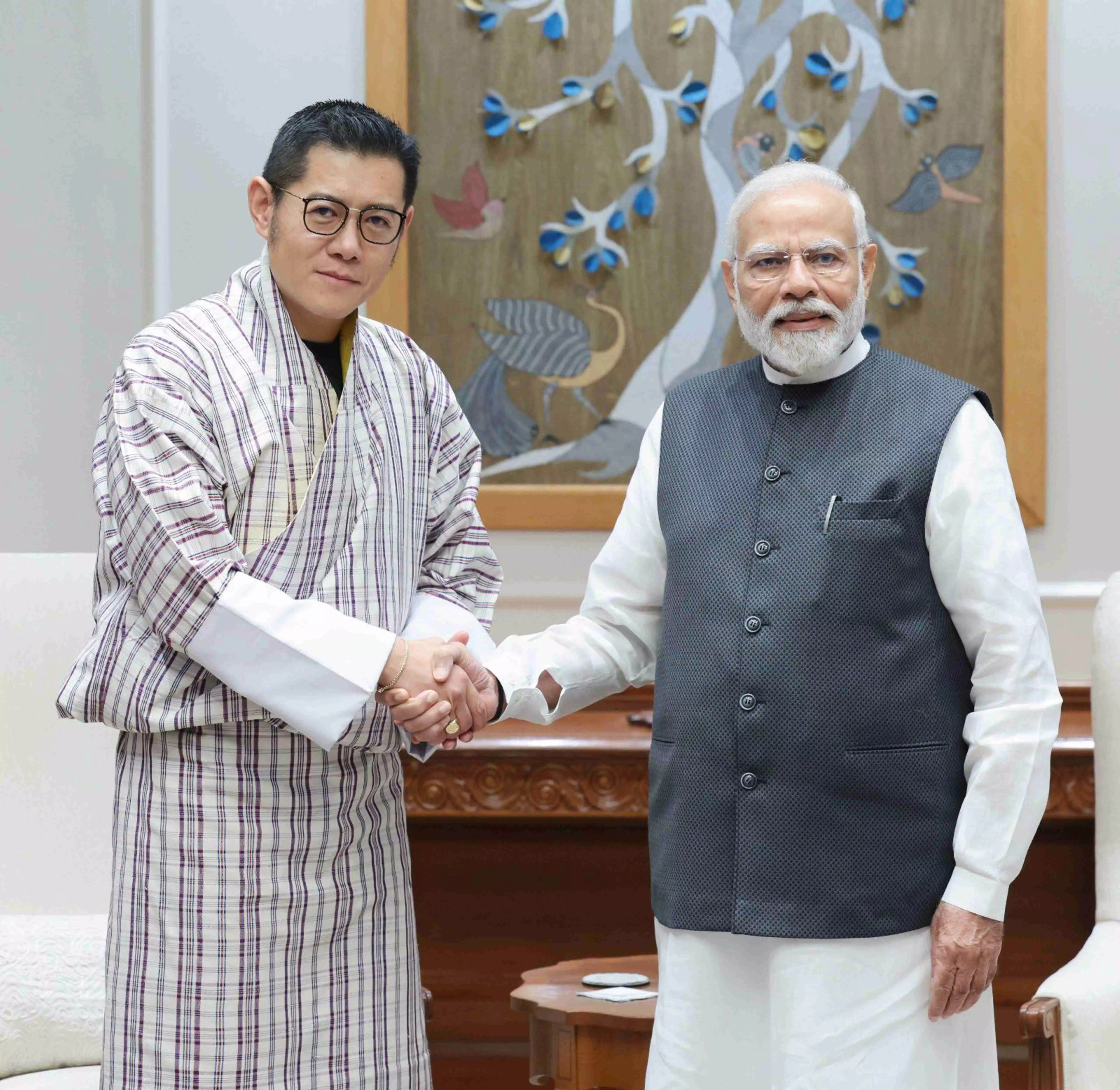Redefining relations

On November 5, Bhutan's King, Jigme Khesar Namgyel Wangchuck, arrived in New Delhi to a warm and impressive welcome, with India's External Affairs Minister S Jaishankar personally receiving him at the airport. King Wangchuck's eight-day visit to India underscores the historically close ties shared between the two nations. This display of camaraderie is more than a mere formality; it signifies the strong and enduring relationship that Bhutan and India have nurtured over the years. The visit, in its initial days, has already hinted at the far-reaching ambitions Bhutan has in mind. King Wangchuck has proposed an ambitious project, which involves the establishment of a Special Economic Zone at Bhutan's southern border with Assam, along with the construction of an airport in Gelephu. These initiatives are designed to attract foreign investment into Bhutan and generate much-needed employment opportunities for its citizens. Bhutan currently grapples with the challenge of youth outmigration, and these development projects aim to reverse that trend. During his stay, the King has also discussed various infrastructure projects, including the construction of a 57-kilometer rail line connecting Korajhar in Assam with Gelephu in Bhutan. Additionally, tourism and hydropower, two key sectors for Bhutan, are on the agenda for discussion. It is heartening to witness the two nations collaborate on pragmatic bilateral relations that will not only solidify their historical ties but also pave the way for a more prosperous future. While it is still the early days of the King's visit, and detailed deliberations have not been disclosed, it is evident that both sides are placing a strong emphasis on nurturing their bilateral relations. Interestingly, the border talks between China and Bhutan have not taken the centrestage during these discussions. It is true that India needs to be vigilant regarding the warming relations between China and Bhutan. However, the most prudent approach to balance the potential Sino-Bhutanese alliance is to further strengthen India's own ties with Bhutan rather than attempting to dissuade Bhutan from engaging with China. In recent times, the China-Bhutan border talks in Beijing have raised eyebrows in India. Bhutan's Foreign Minister, Tandi Dorji, made two significant declarations during these talks that caught the attention of Indian policymakers: Bhutan's genuine desire for a swift resolution of the border dispute and the intent to establish diplomatic relations with China as soon as possible. Contrary to popular perception, the apparent divide that emerged between China and Bhutan following the Doklam standoff never really existed. Diplomatic interactions between the two nations have continued behind the scenes. Bhutan perceives in China a potent ally, both as a member of the P5 nations and as a force that can bolster Bhutan's economic and strategic goals. This is precisely where India can play a crucial role. Across various domains, from economic partnerships to addressing strategic concerns and bolstering global credibility, China appears to be losing ground while India is gaining momentum. By forging stronger strategic and economic ties with Bhutan, India can demonstrate to its neighbour that it is the more reliable partner to support its burgeoning aspirations. In the context of the China-Bhutan border settlement and the associated concerns over the Siliguri Corridor, India should work diligently to secure its key connectivity link in the region while also remaining open to exploring alternative complementary options. The changing geopolitical landscape necessitates a pragmatic and forward-thinking approach from India. Bhutan's aspirations, be they economic, strategic, or diplomatic, need to be acknowledged and supported. Instead of resisting Bhutan's outreach to China, India should seize this opportunity to further solidify its age-old friendship with Bhutan and foster a prosperous and secure future for both nations. The visit of King Jigme Khesar Namgyel Wangchuck serves as a reminder of the unique and profound relationship that India and Bhutan share. It is an opportunity for both nations to work together in building a stronger and more stable future amidst a shifting global landscape. It is a moment that calls for strategic collaboration and pragmatic decision-making, and India must rise to the occasion.



